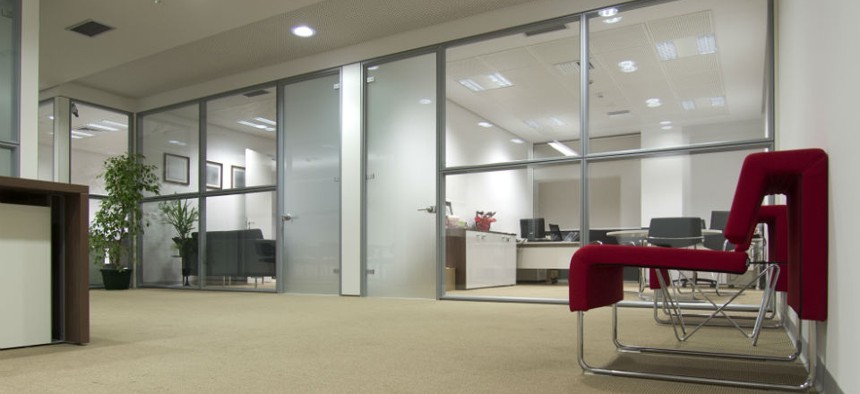
Basileus / Shutterstock.com
A Compelling Case for Bringing Back Private Offices at Work
Offices give people control over their productivity and foster efficiency.
The cushy private offices, complete with couch and bar, that Don Draper and his ilk enjoyed would be unthinkable in most companies today. The workplace has seen a years-long trend of shrinking personal space—driven, if you believe the companies doing it, by a desire for increased collaboration in an open office (and not at all by the cost-savings of packing more people into smaller spaces).
But there’s a growing backlash to the open-plan office, and the New York startup Stack Overflow lays out a compelling case for the resurrection of the private office.
That strategy seems to be working out just fine for Stack Overflow itself, which makes private offices available to all of its developers. The company, which primarily operates as a question and answer site for programmers, announced this week that it raised another $40 million in venture capital.
The benefits of giving people the option of working privately have been huge for Stack Overflow, the company’s VP of Engineering, David Fullerton, writes in a blog post. Here’s his reasoning:
It gives people control over their own productivity
The major benefit of the private office is that people can decide when they need to close their door and avoid interruptions. Open offices take that control away. Headphones help, but it’s tough to avoid distractions.
“People come in at different times, take breaks at different times, need to socialize at different times, and have their most productive hours at different times,” Fullerton writes. “Management’s job is to accommodate that and create a space where all those conflicting needs don’t congeal into a persistent hum of distraction—not to enforce some top-down ideal of openness and creativity.”
The open office also creates social pressure to conform. That can make people that do their best work early in the morning feel pressure to stay late as well, so they don’t look like slackers.
The simple ability to shut a door when you need to finish something means a great deal in the moment. And the long-term benefits of figuring out how and when you’re most productive are very large.
It creates a culture of efficiency
Stack Overflow also has many remote workers. As a result, most interaction is online anyway.
“This creates a magnificent culture of non-distraction,” Fullerton writes. “Whenever we get a new hire in the office, I make it a point to sit down with them in their first week and explain that they should not go to someone’s office when they have a question. Instead, ping them in chat and then jump on a hangout.”
The online communication works better than face-to-face discussions in an open office, he argues. Several people can jump into a conversation without distracting others, and those who need to get something else done can just close the window.
Private offices are not a solution that will work at every company. Even Stack Overflow doesn’t offer one to every employee: Some people share offices, and the sales team wanted to sit together. And of course there are some pitfalls in remote and private office work—that people get too focused on individual problems, for example, or end up working on the wrong things.
But the company’s experience is a reminder that there are some good reasons that private offices were the norm for so long.
(Image via Basileus / Shutterstock.com)






